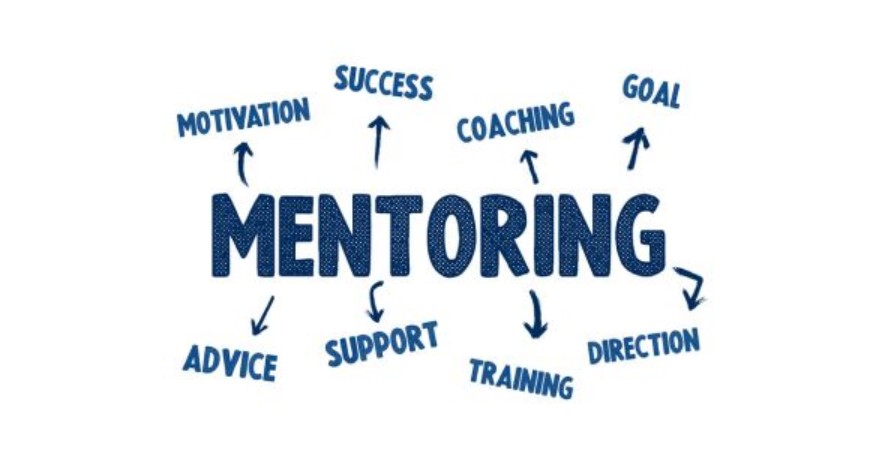Imagine navigating your personal or professional journey with someone who’s just a step or two ahead of you—someone who understands your challenges and can guide you with empathy and real-life experience. That’s the heart of What Is Peer Mentoring—a collaborative relationship that bridges learning gaps, builds confidence, and fosters growth on both sides.
Understanding What Is Peer Mentoring
What Is Peer Mentoring? It’s a supportive partnership between individuals at similar stages in their education, career, or personal lives. Typically, one person (the mentor) has slightly more experience or knowledge and offers guidance to the other (the mentee). Unlike traditional mentoring, peer mentoring emphasizes equality, shared experiences, and mutual respect.
This approach is widely used in educational institutions, workplaces, and community programs to improve learning outcomes, enhance emotional well-being, and build strong support networks. Whether you’re a college freshman paired with a senior or a new employee matched with a more seasoned colleague, the benefits of peer mentoring are tangible and lasting.
The Core Roles in Peer Mentoring
To better understand What Is Peer Mentoring, it’s essential to examine the primary roles involved in this relationship:
1. The Peer Mentor
The mentor provides guidance, shares experiences, and offers encouragement. Their role is not to direct or instruct but to support and inspire. Peer mentors often help with goal-setting, problem-solving, and adapting to new environments. Importantly, they act as role models and motivators, showing the mentee what is possible through persistence and effort.
2. The Mentee
The mentee is the person seeking support, direction, or growth. They benefit from the insights of their mentor and are encouraged to take initiative, ask questions, and reflect on their journey. A successful peer mentoring relationship depends on the mentee’s willingness to engage and learn actively.
3. The Facilitator or Coordinator
In formal programs, especially in schools or organizations, a coordinator may oversee the peer mentoring initiative. This person ensures that mentor-mentee pairs are compatible, sets expectations, monitors progress, and provides training and resources to mentors.
Essential Skills for Effective Peer Mentoring
To excel in peer mentoring, both mentors and mentees should develop a range of soft skills. Let’s explore the competencies that define a successful peer mentoring relationship.
1. Active Listening
Mentors must listen without judgment, allowing mentees to express their concerns freely. This builds trust and ensures that advice is relevant and empathetic.
2. Communication
Clear, respectful, and honest communication is at the core of What Is Peer Mentoring. Both parties must be comfortable giving and receiving feedback constructively.
3. Empathy
Understanding another’s perspective without immediately offering solutions is crucial. Empathy helps mentors connect emotionally and guide effectively.
4. Goal Setting and Accountability
Mentors assist in setting realistic goals and keeping the mentee on track. They also help break down larger goals into manageable steps.
5. Problem-Solving
Whether it’s academic stress or workplace adaptation, mentors should be adept at helping their peers navigate challenges with confidence.
Advantages of Peer Mentoring
When we explore What Is Peer Mentoring, we also uncover a host of benefits that impact both individuals and communities. Here’s how:
1. Builds Confidence and Self-Esteem
Mentees gain encouragement and affirmation, which boosts their self-belief. Mentors also grow in confidence as they reflect on their own journeys and take pride in helping others.
2. Enhances Learning and Performance
Students and employees who participate in peer mentoring often show improved performance, retention, and satisfaction. Explaining concepts to others also reinforces the mentor’s understanding.
3. Promotes Emotional Well-being
Feeling heard and supported can significantly reduce stress, loneliness, and anxiety. Peer mentoring creates a safe space where individuals feel understood and less isolated.
4. Develops Leadership and Interpersonal Skills
Mentors hone their leadership, communication, and coaching skills—valuable assets in both academic and professional settings. Mentees often become future mentors, continuing the cycle of development.
5. Fosters Inclusion and Belonging
Especially in diverse or unfamiliar environments, peer mentoring builds bridges between people of different backgrounds. It encourages respect, cooperation, and cultural awareness.
Applications of Peer Mentoring
Another way to understand What Is Peer Mentoring is to look at where it’s commonly applied:
- Educational Settings: Schools and universities use peer mentoring to ease transitions, improve study habits, and build community.
- Corporate Environments: New hires are often paired with experienced colleagues for onboarding and career guidance.
- Healthcare and Recovery: Patients and individuals recovering from addiction benefit from peer support by those who’ve had similar experiences.
- Community Programs: Peer mentors help at-risk youth, immigrants, or marginalized individuals find direction and empowerment.
How to Start a Peer Mentoring Program
If you’re inspired by the concept of What Is Peer Mentoring, here’s a simple guide to launching your own initiative:
1. Define the Purpose and Scope
Clarify the goals of your program—academic support, career development, emotional wellness, etc.
2. Recruit and Train Mentors
Select mentors who demonstrate maturity, responsibility, and the ability to communicate well. Offer training to prepare them for their roles.
3. Match Thoughtfully
Pair mentees with mentors who align in background, interests, or goals. Compatibility enhances the effectiveness of the relationship.
4. Monitor and Support
Regular check-ins and feedback mechanisms ensure the program stays on track and participants feel supported.
5. Celebrate Successes
Acknowledge milestones and achievements to motivate continued participation and growth.
Final Thoughts
Ultimately, the question What Is Peer Mentoring goes far beyond simple guidance or support. It’s about human connection, empowerment, and mutual growth. Whether you’re a student, a professional, or part of a community initiative, engaging in peer mentoring can transform your perspective—and your potential. It’s not just about what you learn, but who you become in the process.

